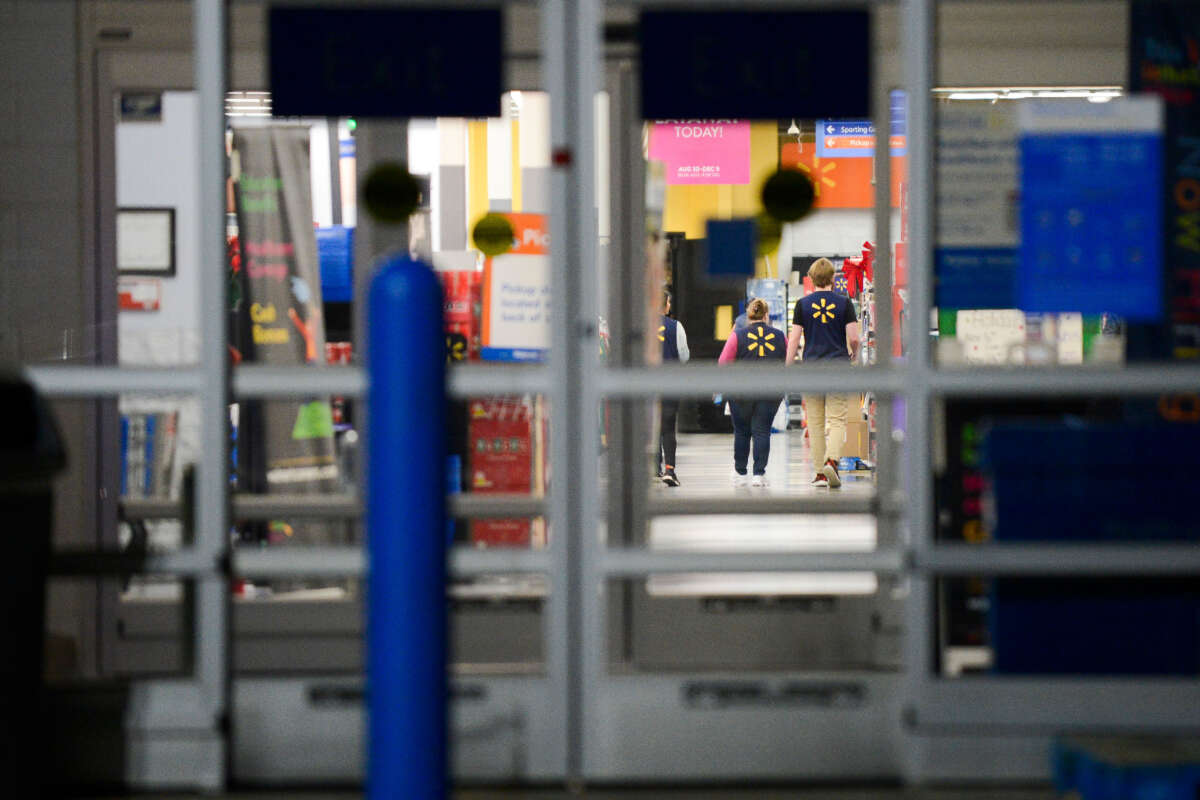Support justice-driven, accurate and transparent news — make a quick donation to Truthout today!
A United Nations (UN) poverty expert has called on the CEOs of Amazon, DoorDash and Walmart to address allegations that inadequate pay, hostile union-busting tactics, and the misclassification of workers as “independent contractors” are trapping workers in poverty.
“I am extremely disturbed that workers in some of the world’s most profitable companies — in one of the richest countries on earth — are struggling to afford to eat or pay their rent,” Olivier De Schutter, the UN-appointed independent expert on extreme poverty and human rights, said in separate letters to the companies’ CEOs. “Multi-billion-dollar companies should be setting the standard for working conditions and wages, not violating the human rights of their workers by failing to pay them a decent wage.”
A recent UN report authored by De Schutter on extreme poverty and human rights found that 6.3 million people in the United States — representing 4.1 percent of workers — are classified as working poor. The U.S. working poor are defined as people who have spent at least 27 weeks during a year working or looking for work but have incomes below the national poverty line ($14,580 for individuals and $19,720 for a family of two).
Many workers at Amazon, DoorDash and Walmart qualify as working poor. A 2020 Government Accountability Office report found that Amazon, DoorDash and Walmart were among the top employers of recipients of government medical and food assistance.
“Jobs are supposed to provide a pathway out of poverty, yet in all three companies the business model seems to be to shift operating costs onto the public by relying on government benefits to supplement miserably low wages,” De Schutter said.
The ability of workers at these companies to negotiate higher wages is inhibited by aggressive union-busting activities. Walmart, the largest employer in the U.S., has engaged in decades of anti-union activities, which include shutting down stores over labor activism. In 2022, Amazon purportedly spent more than $14.2 million on anti-union consultants. DoorDash, one of the leading gig platforms, has fired employees for union organizing and publicly opposed wage increase ordinances for its workers.
“It appears that the US is turning a blind eye to the union-busting activities of its most powerful corporations, allowing them to steamroll workers into accepting poverty wages while corporate revenues soar,” De Schutter said.
The companies were asked to respond to these allegations within 60 days, but, by the October 31 deadline, only Amazon provided a reply. After the letters were made public, Doordash disputed the allegations and agreed to provide a more detailed response in the coming weeks.
“What these companies do for the most part is not illegal,” De Schutter told The Guardian. “What they do is use the loopholes in the system — for example, misclassifying workers as independent contractors rather than employees. There are many loopholes in the system that the U.S. government is still responsible for, and I’m still expecting an answer from the Department of Labor.”
Earlier this year, De Schutter wrote a letter to the U.S. government detailing the allegations that Amazon, DoorDash and Walmart contribute to in-work poverty among their employees, in violation of U.S. and international labor protections and international human rights obligations.
“According to the information received, in-work poverty is directly linked to U.S. law and policy, including highly inadequate and inconsistent pay, systematic improper worker classification and a proliferation of gig work, paltry social protection, weak and unenforced labor law, widespread discrimination, and a lack of protection for workers at higher risk of poverty,” the letter states.
“Businesses have a responsibility to respect internationally recognized human rights, including the right to a living wage and to join a union without fear of reprisal,” De Schutter said in a statement. “The allegations against Amazon, DoorDash, and Walmart would constitute flagrant violations of these rights and it is time for these corporations, and the U.S. government, to be held accountable.”
A terrifying moment. We appeal for your support.
In the last weeks, we have witnessed an authoritarian assault on communities in Minnesota and across the nation.
The need for truthful, grassroots reporting is urgent at this cataclysmic historical moment. Yet, Trump-aligned billionaires and other allies have taken over many legacy media outlets — the culmination of a decades-long campaign to place control of the narrative into the hands of the political right.
We refuse to let Trump’s blatant propaganda machine go unchecked. Untethered to corporate ownership or advertisers, Truthout remains fearless in our reporting and our determination to use journalism as a tool for justice.
But we need your help just to fund our basic expenses. Over 80 percent of Truthout’s funding comes from small individual donations from our community of readers, and over a third of our total budget is supported by recurring monthly donors.
Truthout has launched a fundraiser, and we have a goal to add 273 new monthly donors in the next 72 hours. Whether you can make a small monthly donation or a larger one-time gift, Truthout only works with your support.
